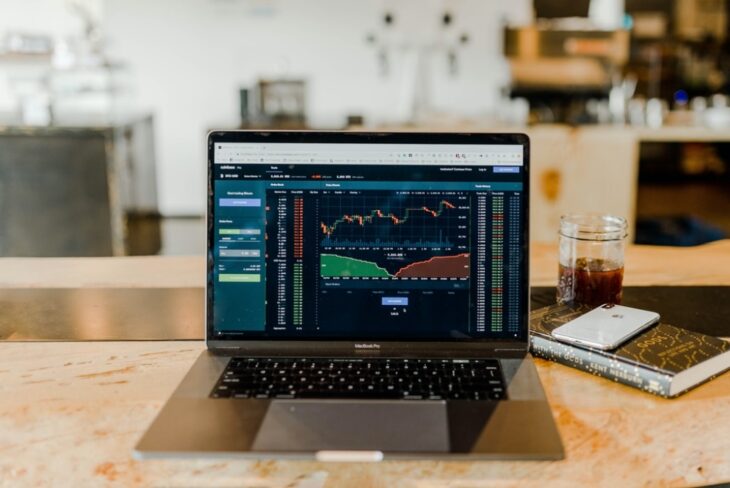Cryptocurrencies are digital assets designed to function as a medium of exchange, store of value, and unit of account. Bitcoin, the first cryptocurrency, was created in 2009 and has since grown to become the most valuable and well-known cryptocurrency in the world. However, Bitcoin is not the only cryptocurrency out there. In recent years, a number of alternative cryptocurrencies, or altcoins, have emerged, each with their own unique features and value propositions.
Contents
What are Altcoins? Definition and Examples

Source: pymnts.com
Altcoins are cryptocurrencies that are alternative to Bitcoin. They operate on similar principles as Bitcoin adn can be traded at profit-maximizer.app, but they have their own distinct features and characteristics. Some of the most popular altcoins include Ethereum, Litecoin, Bitcoin Cash, Ripple, and Dogecoin.
Ethereum is the second-largest cryptocurrency by market capitalization after Bitcoin. It was created in 2015 by Vitalik Buterin, and it is designed to be a platform for decentralized applications (dApps) and smart contracts. Ethereum uses a programming language called Solidity, which allows developers to create customized dApps and execute complex transactions on the blockchain.
Litecoin is another popular altcoin that was created in 2011 by Charlie Lee. It is often referred to as the “silver to Bitcoin’s gold” and is designed to be a faster and cheaper alternative to Bitcoin. Litecoin uses a different mining algorithm than Bitcoin, which allows for faster transaction times and lower fees.
Bitcoin Cash is a fork of Bitcoin that was created in 2017. It was designed to address some of the scalability issues of Bitcoin by increasing the block size limit from 1MB to 8MB. This allows for more transactions to be processed per second, which can help reduce transaction fees and increase transaction speeds.
Ripple is a cryptocurrency that was created in 2012 by Ripple Labs. It is designed to be a platform for cross-border payments and remittances. Ripple uses a consensus algorithm called the Ripple Protocol Consensus Algorithm (RPCA), which allows for faster and cheaper transactions than traditional payment methods.
Dogecoin is a cryptocurrency that was created in 2013 by Billy Markus and Jackson Palmer. It was originally designed as a joke, but it has since gained a cult following and has become a popular cryptocurrency for tipping and microtransactions.
Trends and Market Analysis

Source: blocksocial.com
Altcoins have seen tremendous growth in recent years. In 2017, the total market capitalization of all cryptocurrencies surpassed $800 billion, with Bitcoin accounting for over half of that value. However, altcoins have been gaining ground, and as of May 2024, the total market capitalization of all cryptocurrencies is over $2 trillion, with Bitcoin
One trend that has emerged in the altcoin market is the rise of decentralized finance (DeFi) applications. DeFi is a movement that aims to create a financial system that is open, transparent, and accessible to everyone, regardless of their background or location. DeFi applications are built on blockchain technology and allow users to access a range of financial services, such as lending, borrowing, and trading, without the need for intermediaries like banks.
Many altcoins are designed to support DeFi applications. For example, the Ethereum blockchain is home to many DeFi protocols, such as Uniswap, Aave, and Compound. These protocols allow users to lend and borrow cryptocurrency, earn interest on their holdings, and trade cryptocurrencies in a decentralized manner.
Another trend in the altcoin market is the rise of non-fungible tokens (NFTs). NFTs are digital assets that represent ownership of a unique item, such as a piece of artwork, a collectible, or a virtual real estate. NFTs are built on blockchain technology and are often sold in online marketplaces using cryptocurrency.
For example, the Enjin Coin is designed to be used in the Enjin ecosystem, which allows users to create, distribute, and trade NFTs. The Flow blockchain, which is home to many popular NFT projects, including NBA Top Shot and CryptoKitties, has its own native cryptocurrency called FLOW.
Why Altcoins Matter: Potential Advantages over Bitcoin

Source: brobible.com
Altcoins offer several potential advantages over Bitcoin. One of the main advantages is their ability to offer more specific use cases. While Bitcoin is primarily designed to be a store of value and a medium of exchange, altcoins can be designed to support a wide range of applications and use cases.
For example, Ethereum’s ability to support smart contracts and decentralized applications has made it a popular platform for DeFi and NFT projects. Ripple’s focus on cross-border payments has made it a popular choice for companies looking to streamline their payment processes. Litecoin’s faster transaction times and lower fees have made it a popular choice for everyday transactions.
Another advantage of altcoins is their potential for higher returns on investment. While Bitcoin is often seen as a safe bet in the cryptocurrency market, altcoins can offer higher returns due to their smaller market capitalizations and higher volatility. Of course, this also means that altcoins can be more risky investments, as they are more susceptible to market fluctuations and scams.
Investing: Risks and Rewards

Source: unsplash.com
Before investing in any altcoin, it is important to do your research and understand the potential risks and rewards. Some factors to consider when evaluating an altcoin include its market capitalization, trading volume, development team, use case, and community support.
It is also important to diversify your investments and not put all your eggs in one basket. Investing in a variety of altcoins and cryptocurrencies can help spread your risk and potentially increase your returns.
Innovations and Applications

Source: euronews.com
Many altcoins are specifically designed to support these applications. For example, VeChain is a cryptocurrency that is designed to be used in supply chain management, allowing businesses to track products and verify their authenticity. Civic is a cryptocurrency that is designed to be used in identity verification, allowing users to verify their identity securely and efficiently. Polys is a cryptocurrency that is designed to be used in voting systems, allowing for secure and transparent voting processes.
Altcoins can also be used to support social impact initiatives. For example, Giveth is a cryptocurrency that is designed to support charitable giving and social impact projects. The Giveth platform allows users to donate cryptocurrency directly to social impact initiatives, and to track the impact of their donations in real time.
Conclusion: The Importance of Paying Attention to Altcoins
As the cryptocurrency market continues to evolve, altcoins will play an increasingly important role in shaping the future of finance and technology. By staying informed and engaged with the altcoin market, investors and enthusiasts can stay ahead of the curve and take advantage of the exciting opportunities that lie ahead.
